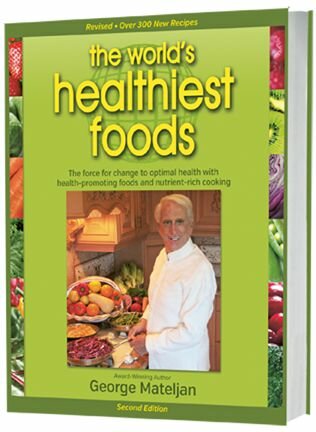 The World's Healthiest Foods are health-promoting foods that can change your life.
The World's Healthiest Foods are health-promoting foods that can change your life.
Try our exciting new WHFoods Meal Plan.
 The World's Healthiest Foods are health-promoting foods that can change your life.
The World's Healthiest Foods are health-promoting foods that can change your life.
Try our exciting new WHFoods Meal Plan.
You do lose some flavor when food is frozen but freezing can be a very good way to preserve the nutritional value, texture and flavor of many foods. The initial quality of the food and the length of time between harvest and freezing are important factors. As long as the food was grown in a high-quality way (for example, organically grown) and was fairly fresh at the time of freezing, the overall nutrient retention in a frozen food can be quite high. In other words, many of the vitamins and minerals will keep fairly well in frozen foods.
Some of the phytonutrients found in food may also keep fairly well. For example, we have seen research showing that anthocyanin flavonoids can be well preserved during freezing. Even though they are rather delicate, a recent study found no significant reduction in the levels of anthocyanins in blueberries after three months of freezing.
One of the main concerns for nutrient loss associated with freezing seems to be related to the blanching process that oftentimes occurs prior to freezing. About 25% of the vitamin C and a greater percentage of folate are lost during the blanching process that occurs before foods are frozen. About 10% of thiamin (vitamin B1) is also lost during blanching. It's important to remember that these percentages of nutrient loss are very general and can be different with different foods. Nevertheless, as you can see from the numbers above, the freezing-connected loss of these water-soluble vitamins never comes close to outweighing the amount of vitamins retained.
If you are freezing foods at home, we recommend that you visit the website for the National Center for Home Food Preservation at the following address: http://www.uga.edu/nchfp/how/freeze.html. This website provides some very detailed information about foods that do not freeze well, containers to use for freezing, the role of blanching, and other issues related to the freezing of specific foods. We would disagree with this website, however, in its recommendation of aluminum foil for freezing, since we believe that aluminum poses an unnecessary risk both to our health and to our environment.
Since we have seen some research that suggests that thawing degrades part of the vitamin C content, you may want to avoid this step when cooking frozen vegetables. Storing frozen foods properly (0°F) for no more than 6 months will also help maintain the nutritional value of frozen foods.
References:
Lohachoompol V, Srzednicki G, Craske J. The Change of Total Anthocyanins in Blueberries and Their Antioxidant Effect After Drying and Freezing. Biomed Biotechnol. 2004;2004(5):248-252.
Nursal B, Yucecan S. Vitamin C losses in some frozen vegetables due to various cooking methods. Nahrung. 2000;44(6):451-3.
Severi S, Bedogni G, Manzieri AM, et al. Effects of cooking and storage methods on the micronutrient content of foods. Eur J Cancer Prev. 1997;6 (Suppl 1):S21-4.

Everything you want to know about healthy eating and cooking from our new book.

Order this Incredible 2nd Edition at the same low price of $39.95 and also get 2 FREE gifts valued at $51.95. Read more